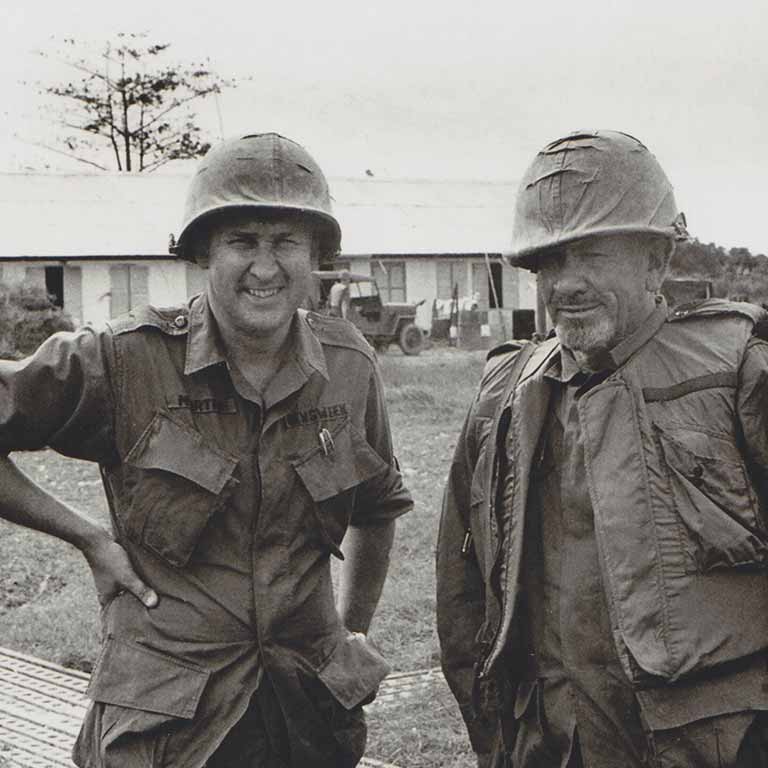Everett G. Martin spent his career reporting from some of the world’s most turbulent locales. He was Newsweek’s bureau chief in Saigon during the war in Vietnam and covered the 1973 Chilean coup for The Wall Street Journal. During his time in Vietnam, he befriended author John Steinbeck, who later said Martin’s work was “some of the best reporting I have ever read.”
Martin’s first overseas adventure was as a college student, when he shipped out one summer as a cabin boy on freighter going to Cuba. At IU, he was a night editor and city editor of the Indiana Daily Student. After graduation, he started his career at the City News Bureau of Chicago at $15 a week. From there, he went to the Elkhart Truth and then to the Christian Science Monitor. In 1958, the Monitor sent him to cover the auto industry in Detroit, where The Wall Street Journal later hired him. He moved to New York City, and continued to cover labor and the auto industry.
Martin’s next move was to Time magazine to write about business. He followed his editor to Newsweek, where he worked as deputy foreign editor and covered the United Nations. In the early 1960s, he was given his first overseas assignment: a temporary posting in Hong Kong. He covered Singapore’s expulsion from Malaysia and the India-Pakistani war so effectively that Newsweek made him a permanent foreign correspondent.
In January 1966, Martin was sent to Saigon to set up Newsweek’s bureau. He reported on the war, ran the bureau and briefed visiting dignitaries such as Edward Kennedy and Richard Nixon.
Martin was expelled from Vietnam in 1968 for reporting on government corruption. Newsweek assigned Martin as Hong Kong bureau chief covering Southeast Asia. He traveled with Filipino Sen. Benigno Aquino during his campaign against President Ferdinand Marcos.
He returned to Boston, where he spent a year as an associate professor in the Edward R. Murrow Fletcher School of Law and Diplomacy at Tufts University. The Wall Street Journal then hired him to cover South America, which he did for 18 years. His work won the Overseas Press Club’s Ed Stout Award in 1973 and Columbia University’s Maria Moors Cabot Prize in 1983. He retired in 1988 and died in 2013.


